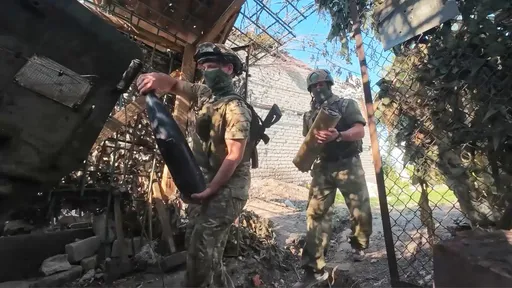An opposition group trapped by regime forces on the edge of the Syrian capital agreed to evacuate to northern Syria on Sunday as reports swirled of a larger agreement that would have the regime retake full control of the eastern Ghouta region after seven years of fighting.
Fighters from the Faylaq al Rahman group left Douma on buses sent by the Syrian regime to the rebel-held province of Idlib, the regime's SANA news agency reported.
Some 1,300 fighters, activists, and civilians signed up to leave the town, according to the Britain-based Syrian Observatory for Human Rights (SOHR) monitoring group.
Faylaq al Rahman did not have a significant presence in the Douma.
They were instead pushed into the town by a recent regime offensive that broke opposition lines and cleaved eastern Ghouta into three parts, said local media activist Ahmad Khansour.
The fighters in Douma who left on Sunday were following their Faylaq al Rahman comrades trapped in two other Ghouta pockets. They relocated to northern Syria last week.
It was the first organised evacuation of fighters from Douma, one of the earliest centres of the anti-regime demonstrations that swept through Syria in 2011.
Regime forces and their allies responded by putting the town and other suburbs around Damascus under siege, bombing hospitals and residential areas, and blocking the entry of food and medical relief.
Jaish al Islam yet to leave
Douma is a stronghold of the powerful Jaish al Islam opposition group. The town is one of the last around the capital to hold out against the regime.
Later Sunday, a media outlet linked to the Syrian regime military reported that Jaish al Islam also agreed to leave to north Syria, effectively transferring control of Douma to Damascus.
The deal would mark the end of a weeks-long push by the regime to consolidate its control of the eastern Ghouta.
According to reports, which are contested, Jaish al Islam would evacuate to Jarablus, a town in northern Aleppo province which is under the control of Syrian opposition and Turkish forces.
A local council for Douma would be formed with the approval of Damascus, said the regime-linked Central Military Media outlet.
Russia's military also said on Sunday that a preliminary agreement had been reached on the evacuation of Jaish al Islam fighters.
Major General Yuri Yevtushenko, chief of the Russian centre for reconciliation of the Syrian warring parties, said the fighters were to hand over maps of mined areas and underground tunnels while leaving Douma, as well as clear major transport routes of barricades.
Opposition official denies deal
Opposition officials, however, denied the reports.
Jaish al Islam did not agree to leave the town, said Iyad Abdelaziz, a member of Douma's current local council. Jaish al Islam has not commented on the reports.
Humanitarian cases would be allowed to leave on Monday, according to Abdelaziz.
Dozens if not hundreds of residents are believed to require care for war wounds and medical conditions exacerbated by the siege of the town.
The regime routinely blocks aid groups from evacuating patients from besieged areas for medical care.
Local activists say over 100,000 civilians are trapped inside Douma, which suffered devastating damage during the latest regime assault.
Ahmad Ramadan, a prominent opposition figure in exile, told the Saudi TV channel Al Arabiya that the Jaish al Islam was still engaged in talks with Russia over the future of the town.
Regime forces extended their control over those areas over the course of a five-week offensive that killed at least 1,600 civilians and displaced tens of thousands more, according to the Observatory, an opposition-linked group that monitors both sides of the conflict.
Air strikes on Idlib
Meanwhile, as rebels, their families and civilians head to opposition-held Idlib province, regime forces and their ally, Russia, are reported to be stepping up attacks on the region.
At least 14 civilians were killed by air raids in Idlib province on Saturday, a civil defence official said.
According to Mustafa Hajj Youssef, director of the White Helmets civil defence agency in Idlib, the air raids targeted the villages of Bsenkul, Ariha, and Dana.
On Sunday, the Turkish Red Crescent condemned air strikes targeting Idlib city.
In a statement, the Turkish aid agency said the world should not stay silent in the face of this humanitarian outrage but should take action as soon as possible.
“The Turkish Red Crescent condemns this situation, which flouts the law and disregards human rights,” the statement said.























